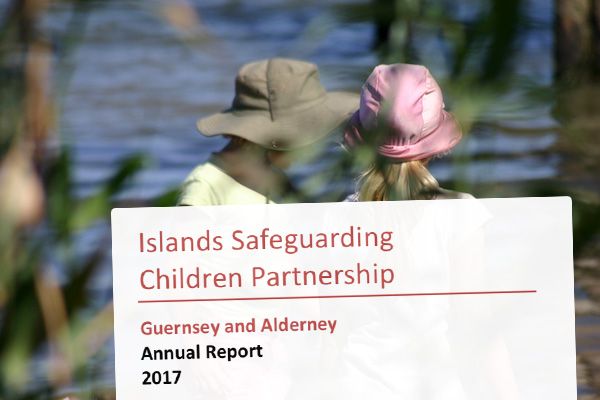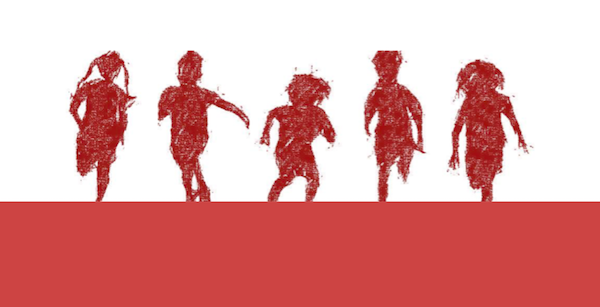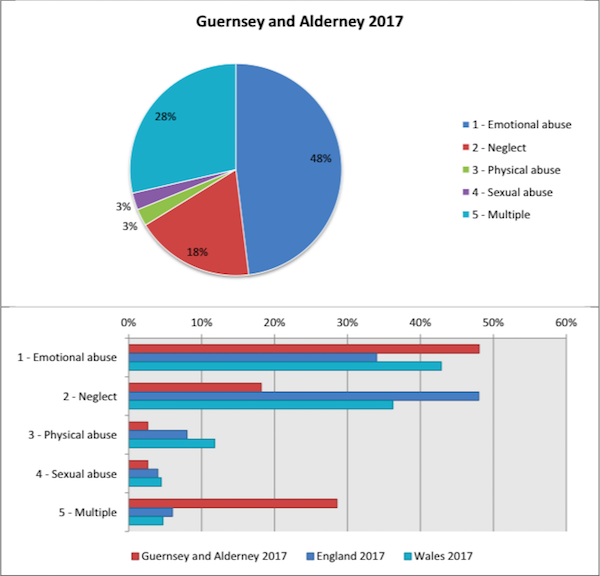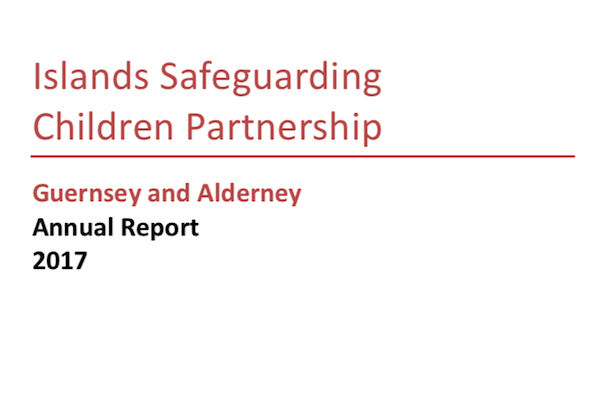

The way Guernsey looks after its most vulnerable young people has seen a number of improvements, according to a multi agency report which has been published this week, but it has acknowledged that more still needs to be done.
The Islands Safeguarding Children Partnership, which used to be known as the Islands Child Protection Committee, said it has highlighted "a number of positive signs in relation to multi-agency efforts to protect vulnerable children."
This includes a reduction in the number of children being cared for off island and a fall in the total number of "looked after children" in Guernsey and Alderney.
Comparing 2017 to 2016, there were eight fewer children being looked after last year - 80 compared to 88 in 2016. The percentage of children being looked after off-island also fell, by just 1% over the course of the year to 14% of those 80 children.

The number of children being discussed by the relevant authorities in the Bailiwick has increased, even if they have not ended up on the child protection register.
During 2017 there was a slight increase in the number of child protection registrations over the course of the year from 30 at the end of January to 39 by the end of December, which reflects the situation in England where the rate of children with child protection plans also increased throughout the year, albeit at a higher rate of 43.3 per 10,000 children at the end of March 2017 compared to 30.3 per 10,000 child population in Guernsey and Alderney.
Significantly, there was a 32 % increase in the number of strategy discussions and pre-birth planning meetings between 2016 and 2017 which has been explained as being "largely due to the way in which figures were reported in 2016, as the MASH and new systems of referral became embedded."
One potential issue highlighted was the percentage of children whose names remain on the register in Guernsey and Alderney for longer than two years, which is higher than in England at 10.5 % in the Bailiwick, compared to 3.4 % in England. The annual review said that could be a sign that plans are not working, however re-registration rates are lower in Guernsey and Alderney. Re-registration is seen as a consequence of having de-registered a child too early, before improvements were able to be maintained.

Children are referred for potential addition to the child protection register for a number of reasons, with parents suffering a history of substance misuse, violence and mental health issues a common factor.
Emotional abuse remains the highest category for registration, but that has fallen from 65 % in 2016 to 48 % in 2017, compared to 34 % in England where neglect remains the highest category of abuse identified for children with a child protection plan at 48 %. The comparable figure in Guernsey is 18 %.
The number of children missing from home, care or school also rose in 2017, reaching 154, after a fall between 2015 and 2016 from 292 to 99. This has been attributed to a change in police recording systems during the time frame given.
The annual review recommends that children in Guernsey and Alderney need to have their emotional welfare monitored following a dramatic fluctuation in the number of young people admitted to hospital due to a mental health condition between 2016 and 2017.
Last year there was a 29 % increase, following a 35 % reduction during the previous year. The review states that "although it is difficult to attach significance to this fluctuation in such a small population, it does indicate that the ISCP should monitor the emotional welfare of local children. The majority of admissions to hospital for mental health concerns were a result of self-harm or suicidal ideation."
There has also been an increase in the re-referral rate for youth offending in the islands. It rose slightly from 27 % in 2016 to 30 % in 2017, which is still below the comparable English statistic which is a proven reoffending rate of 42 % for England and Wales in the first quarter of 2016. The review said this is "a positive sign that this figure has remained low. In addition, there were no custodial sentences for children and only two remands in custody."

The report is the seventh to be released by the Partnership since it was established as part of the Children (Guernsey and Alderney) Law 2008, which was implemented in 2010.
The report itself said "a significant positive is that the number of children being looked after off-island continues to fall." It also said that additionally, child protection registrations remained low and stable across the year and the level of early help being provided through the Multi-Agency Support Hub remains high.
Within the report, which can be read in full here, the ISCP’s plan for 2018 has been highlighted. It identifies the need for continued attention on four strategic priorities:
The Independent Chair of the ISCP, Simon Westwood, said overall the report recognised that there is a lot of good work being done to safeguard children in the islands, although there is always more that can be done. He said 2017 had been a year of embedding improvements, recognising the importance of supportive and nurturing environments for children, young people and families.
"The ISCP has recognised a need to understand more about what can be done to support the emotional health and wellbeing of young people. There are many examples of good work and this progress should be celebrated, however neither the ISCP nor agencies involved in protection of children will ever be complacent. We will continue to challenge partner agencies to consider what more can be done to meet the emotional welfare needs of children in the islands."
Comments
Comments on this story express the views of the commentator only, not Bailiwick Publishing. We are unable to guarantee the accuracy of any of those comments.